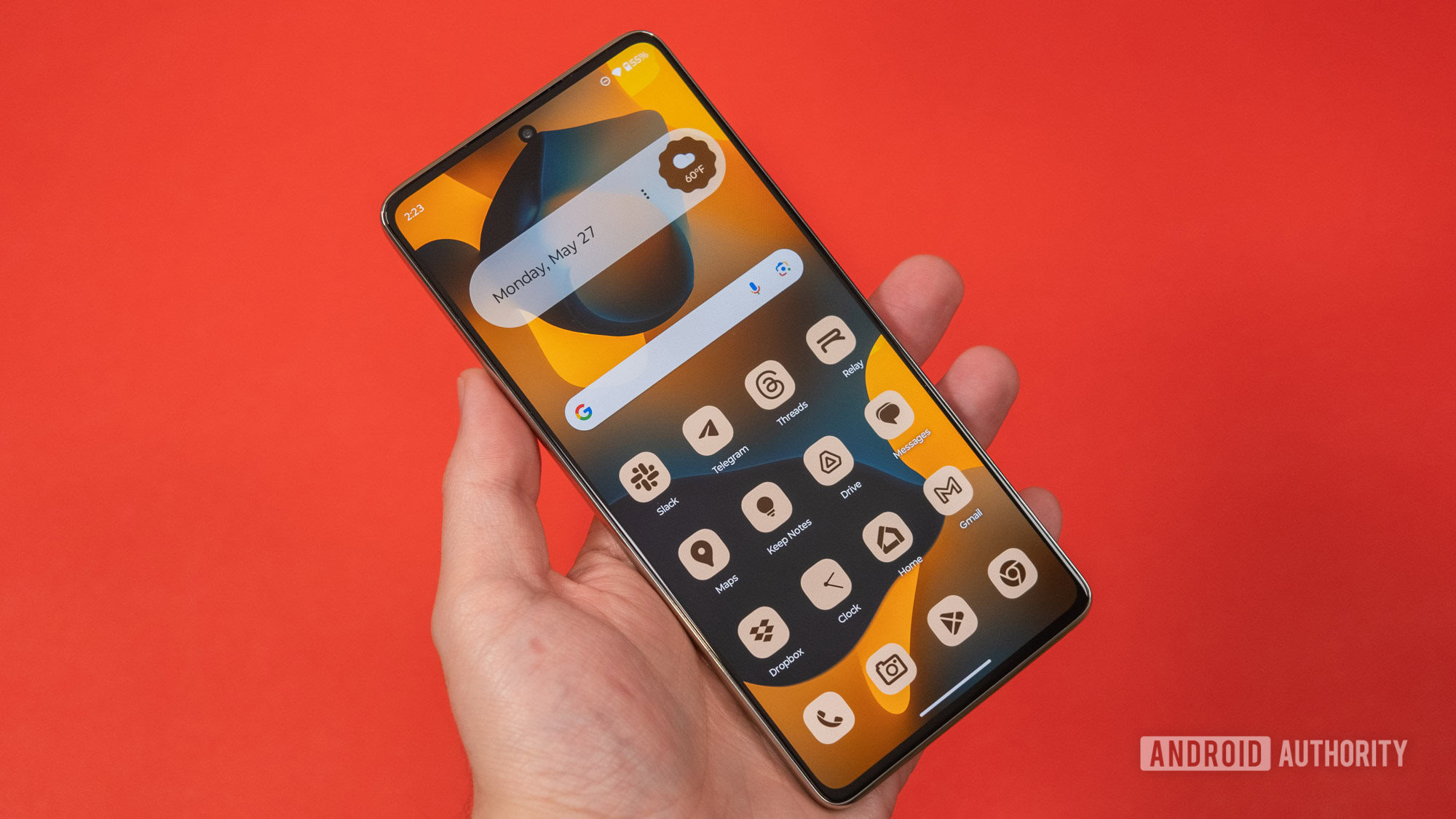The Galaxy S24 family has landed with super-long update support and Galaxy AI in tow. The Galaxy S24 Ultra might get the lion’s share of attention in Samsung’s marketing, but you would do well to remember Samsung’s oft-forgotten middle child before buying a new smartphone. It has much more screen real estate than the baby S24, but it’s not as heavy or expensive as the monstrous S24 Ultra, offering a competent middle ground. Sure, it’s missing some Ultra-tier features like the S Pen and dual telephoto camera lenses, but the Galaxy S24 Plus has a lot to offer the right buyer.
What I like about the Samsung Galaxy S24 Plus
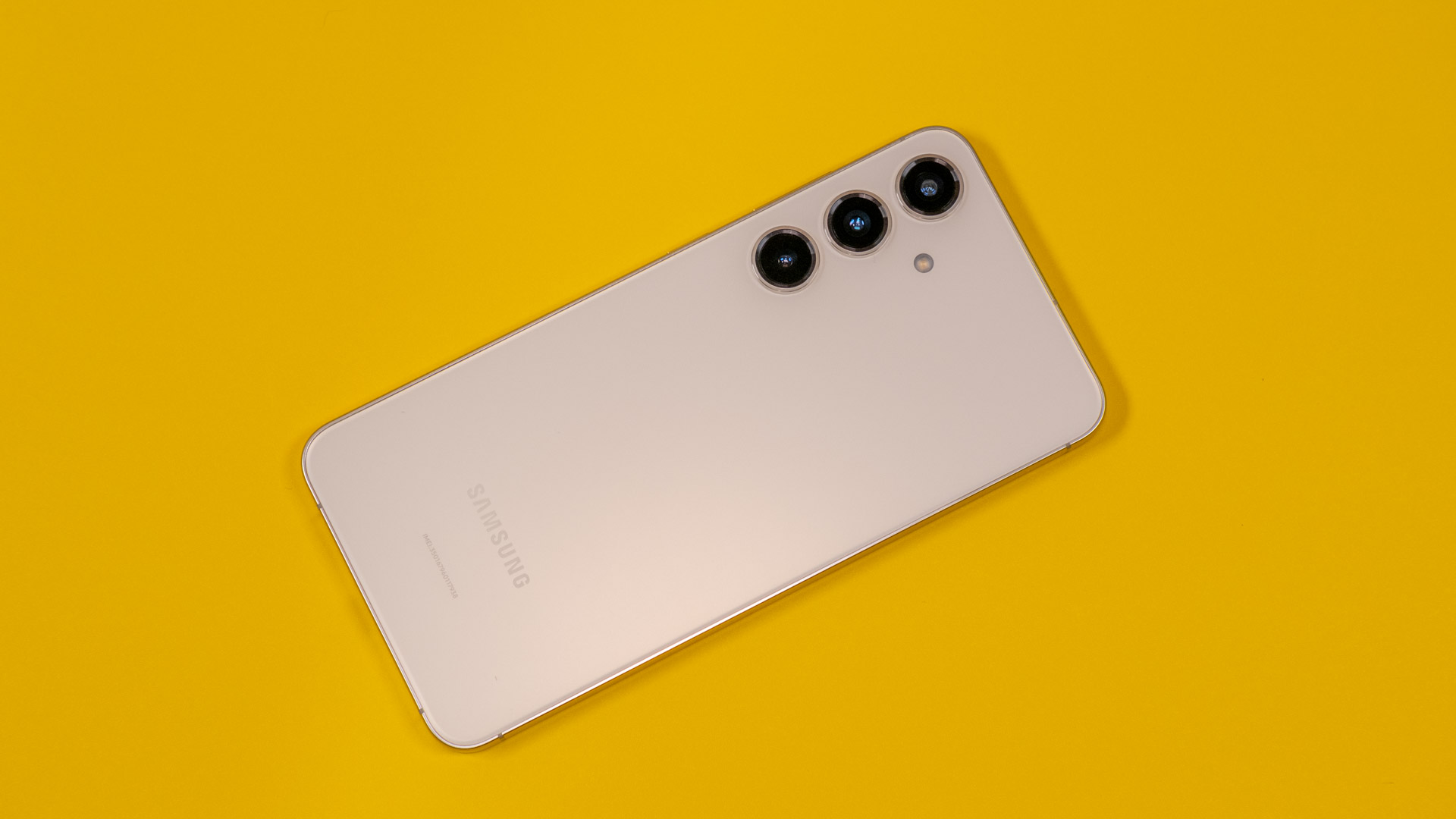
Credit: Ryan Whitwam / Android Authority
If you were to draw the world’s most generic phone in 2024, it would look something like the Galaxy S24 Plus. That’s not necessarily bad, but there isn’t much to the design here if you’re after something new and exciting. There’s a flat panel of Gorilla Glass Victus 2 on the front and back, a flat aluminum frame between them, and three camera cutouts on the back. The phone is almost all display from the front — the OLED takes up 92% of the footprint, with a narrow, symmetrical bezel running all the way around. It is the flat slab smartphone, distilled to its most essential elements.
To me, though, a phone that looks a little boring isn’t a problem when most people slap them in cases, anyway. If you choose to fondle the S24 Plus caseless, you’ll be impressed with the build quality. The frame is extremely rigid, and the buttons are clicky and wobble-free. The iPhone-y flat edges don’t feel much different than the Galaxy S23’s rounded shape. Samsung did round off the edge where the frame meets the back, making it more comfortable to hold.
The Galaxy S24 Plus is the flat slab smartphone, distilled to its most essential elements. But the build quality is sublime.
The centerpiece of the Galaxy S24 Plus is the 6.7-inch OLED screen, which has been upgraded this year from 1,080p to 1,440 x 3,120. That’s the same resolution as the S24 Ultra, and the panel itself is only a tenth of an inch smaller. It’s still a 120Hz display with a great peak brightness of 2,600 nits, so it’s still a little off Samsung’s top dog in the specs race, but even phones with half as much luminance are pretty readable in direct sunlight, so you can bet this one is, too. The S24 Plus gives you an option if you want a larger screen than the baby S24’s (6.2-inch) but without going all the way to the S24 Ultra.
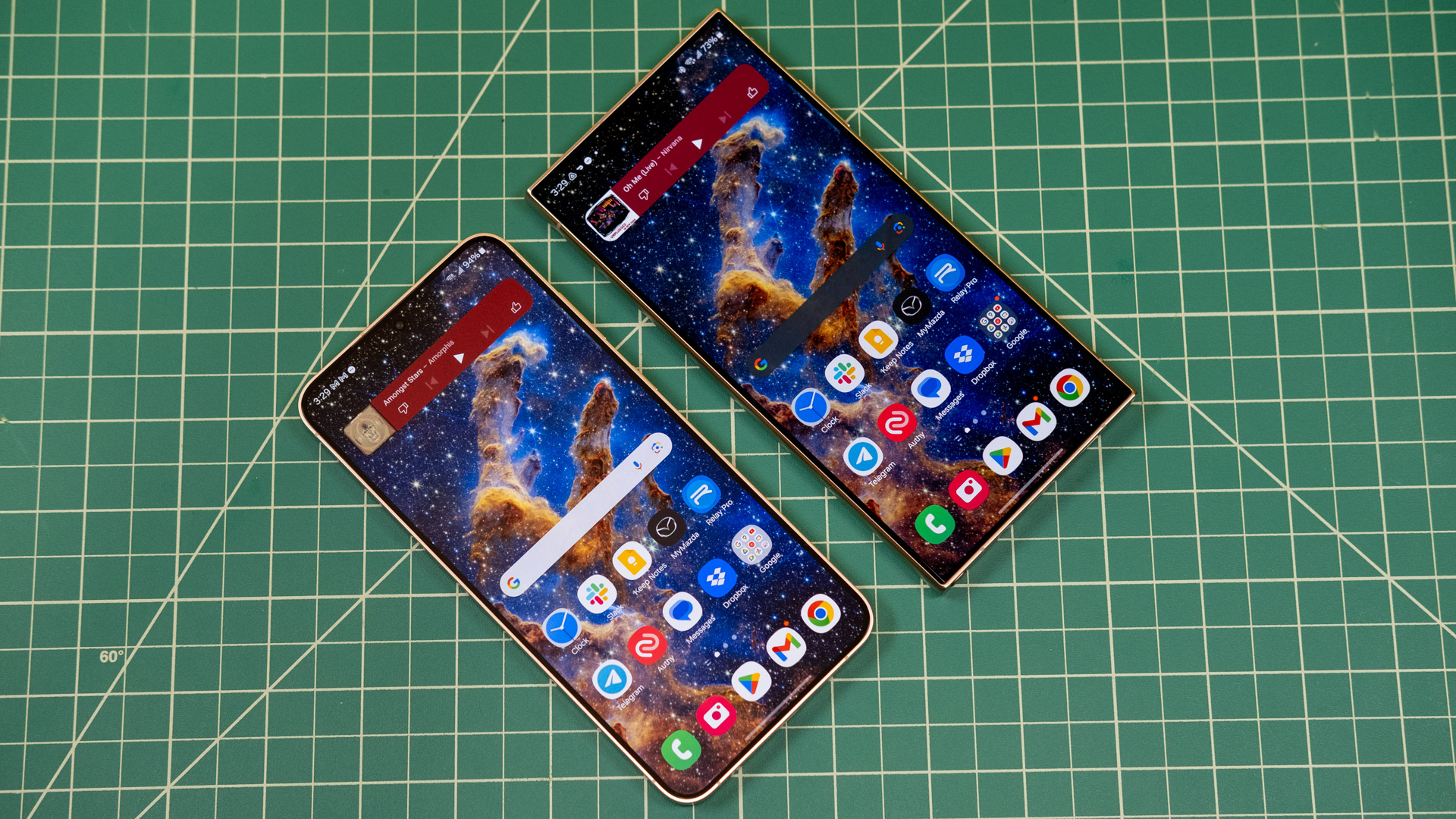
The Galaxy S24 Plus (left) is almost as large as the S24 Ultra (right), but lighter and more curvy.
Credit: Ryan Whitwam / Android Authority
The Galaxy S24 Plus runs Android 14 out of the box with One UI 6.1 on top, and while we always like to see the latest version of Android, that’s not what makes this phone’s software special. Samsung and Google have been going back and forth as they strive to offer the longest Android software support, and Samsung has set a new milestone. All members of the Galaxy S24 family get a whopping seven years of OS and security updates. That means the Galaxy S24 Plus could be running Android 21 in 2031, putting it in line with the Pixel 8 series as the best update policy in the game.
While it’s not Ultra-expensive, I’m sure buyers will appreciate knowing that their $1,000 investment could theoretically still be safe to use into the next decade. Whether or not the Snapdragon 8 Gen 3 will still be fast enough to run the show in seven years is uncertain. As it currently stands, this phone is ludicrously fast. Apps open immediately, multitasking is a breeze, and games render at the highest quality. Samsung phones have great speed in short bursts, but they (Galaxy S24 Plus included) tend to heat up quickly.
If you’re playing a high-end game for longer than a few minutes, you’ll lose some of your performance from thermal throttling. The graph above shows the worst-case scenario, keeping the SoC cranked to the max for 20 minutes. In some of these tests, the chip drops 30-40%. Luckily, Samsung’s overclocked version of Qualcomm’s 2024 flagship chip — dubbed the Snapdragon 8 Gen 3 for Galaxy — has speed to spare. Even when it gets warm, the phone can handle the basics.
Of course, the elephant in the room on performance is that not everyone will get to enjoy the power of Snapdragon. In various global markets, including the UK and across Europe, the Galaxy S24 Plus is instead powered by the Exynos 2400. Thankfully, our testing has shown that unlike the darker years of the Snapdragon vs Exynos battle, Samsung’s own silicon actually holds up pretty well this time. Check out our Snapdragon 8 Gen 3 vs Exynos 2400 deep dive or watch the video below for all the nerdy data.
The battery life is not objectively amazing, but it’s improved from 2023’s Samsung flagships. I consider that a victory with the increase in display resolution from 1080p to 1440p. The battery growing from 4,700mAh on the S23 Plus to 4,900mAh on the S24 Plus helps there. You shouldn’t have any trouble making it through a day with the Galaxy S24 Plus. With a mix of browsing, messaging, games, and video, the S24 Plus has lasted roughly a day and a half with 7-8 hours of screen time during my testing. Two full days without a recharge was also possible, but only with careful battery management. That gives you some leeway as the battery loses capacity over the years, but you’ll probably need at least one battery swap if you use this device for the full seven years.
The tech sector’s growing obsession with generative AI has finally come to Samsung’s mobile operation in the form of Galaxy AI. These features fall into established AI boxes like text composers and image generators. For example, Chat Assist can rewrite your messages with different tones, and Live Translate can instantly translate to and from other languages on a phone call. These features work in the way most generative AI products do — they’re competent but far from perfect. We appreciate the AI photo editing, which allows you to move or remove objects, and the automatic summarizing and formatting in Samsung Notes can be a real time saver.
What I don’t like about the Samsung Galaxy S24 Plus
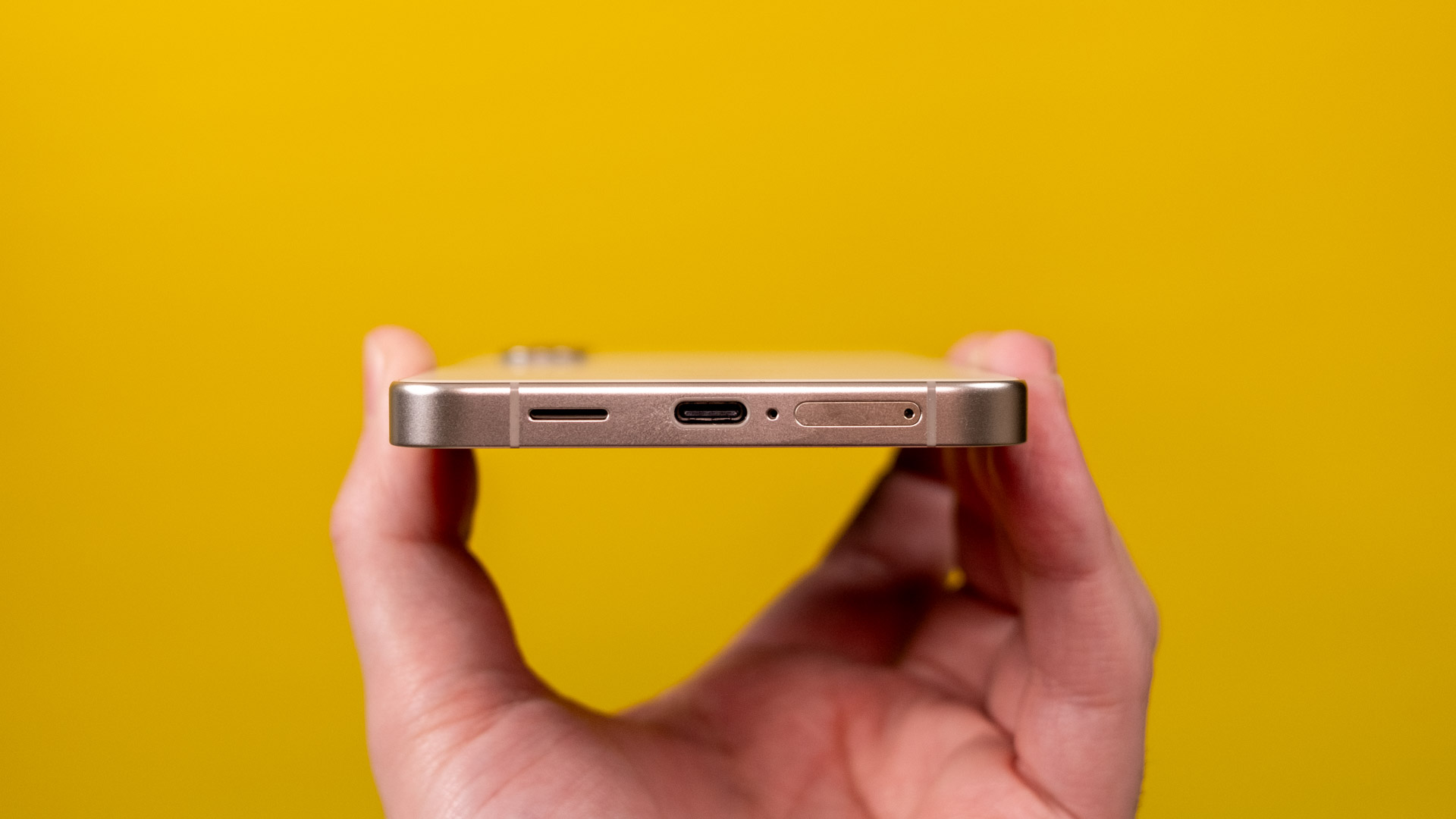
Credit: Ryan Whitwam / Android Authority
Samsung caught up with Apple this year, moving beyond aluminum for the Galaxy S24 Ultra and embracing a titanium build for enhanced durability. However, that’s the only titanium phone in the S24 family. The Galaxy S24 Plus still has Samsung’s Armor Aluminum, a somewhat harder alloy than the aluminum on most phones. To me, it feels like Samsung is just making the S24 Ultra more distinct to justify the inflated price. At $1,000, the S24 Plus really ought to have titanium, too. After all, Apple’s titanium iPhones start at $1,000.
Qualcomm’s latest ARM chip sports an upgraded NPU for machine learning and AI processing, and Samsung has baked all those new Galaxy AI features into the OS. A match made in heaven? Not as much as you’d think. Most Galaxy AI features bypass the NPU to run workloads in the cloud. Samsung says it won’t store your data, but there’s a toggle deep in the settings to only use local processing if you want. If you limit Galaxy AI to use your local hardware, some of the features (e.g. Chat Assist) continue to work, but they take longer to produce worse results. Most don’t work at all. There’s also the looming threat of Galaxy AI features only being guaranteed to be free until the end of 2025. After that, we may be looking at a subscription-based model.
While the battery life is solid, I’m a bit disappointed that Samsung hasn’t improved charging speed. You’re still limited to 45W wired, and the phone doesn’t come with a plug. You’ll need a high-power USB PD charger with PPS to reach the highest speeds, which are tolerable. You will have to plan ahead before you step out, but an hour or so is enough to fill the S24 Plus’ battery when it’s almost dead. If you don’t have a proper fast-charging plug, though, it takes entirely too long.
One UI 6.1 has all the same features as the S24 Ultra, save for the S Pen options. The S24 Plus does a lot, so there are probably going to be pre-loaded apps and features you don’t want. It can be a little overwhelming and claustrophobic to see page after page of buttons and toggles. With the addition of all these new AI features, Samsung is in danger of repeating the feature overload that made its older phones such a pain to use.
With the addition of all these new AI features, Samsung is in danger of repeating its old mistakes of software bloat.
Samsung also continues to set bizarre defaults all over the phone, like three-button navigation and launching Bixby with the power button. So, that’ll probably require some tweaking, and if you decide to ditch Samsung’s preloaded software like the keyboard, gallery, Samsung Notes, you’ll also lose the corresponding Galaxy AI features. These features are tied to Samsung’s apps, sometimes in counterintuitive ways. You can’t just invoke Galaxy AI and tell it to reformat the notes in Google Keep, for example. And why do I need to have Samsung’s keyboard selected to change the tone of text that’s already been typed out in Gmail or Messages? One UI in 2024 really could do with a bit of streamlining, especially if Samsung’s going to cram more generative AI into it. I’m hesitant to even speak its name, but we don’t want another TouchWiz situation on our hands.
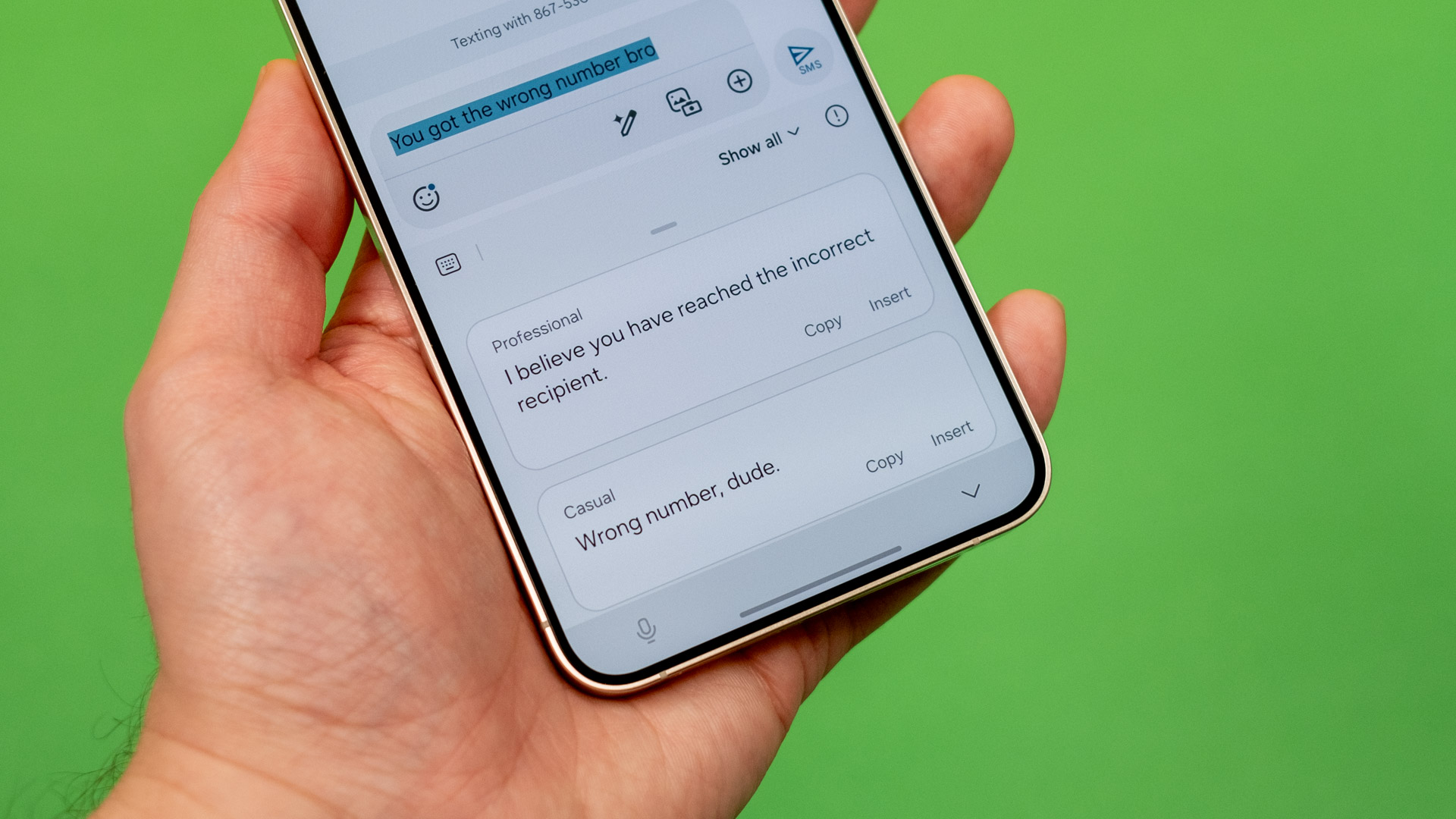
Chat Assist on the S24 Plus is a sometimes-helpful part of Galaxy AI.
Credit: Ryan Whitwam / Android Authority
The display, as mentioned above, has been bumped to the same resolution as the S24 Ultra. That’s nice, but even Samsung’s 1,080p OLEDs look great. A better screen upgrade would have been Gorilla Glass Armor, which you do get on the S24 Ultra. The latest Gorilla Glass has an anti-reflective coating that makes a huge difference outdoors and under bright lights. The S24 Plus is just as reflective as other smartphones, which can be annoying even with the high brightness.
Samsung Galaxy S24 Plus camera review
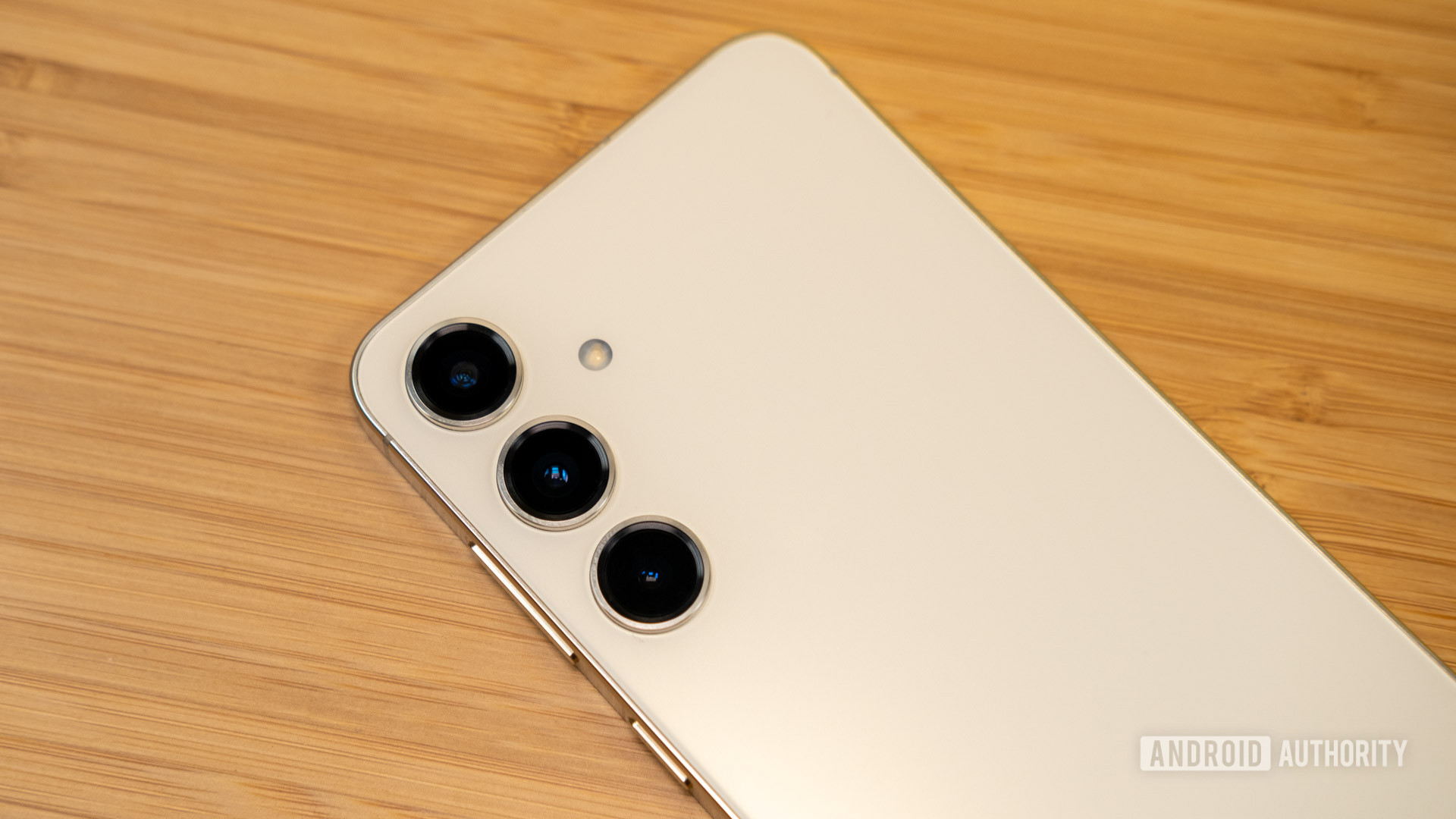
Credit: Ryan Whitwam / Android Authority
The Galaxy S24 Plus camera setup has not seen any updates this year, so we’re still working with a 50MP primary, a 10MP 3x telephoto, and a 12MP ultrawide, just like the Galaxy S23 Plus. On the front, there’s a 12MP selfie camera. The Galaxy S24 Ultra adds a 5x telephoto lens, which is 50MP and can sensor crop for even more reach, as well as a 200MP primary camera. The base Galaxy S24 has the same camera setup as the S24 Plus.
Most of the photos I took with the S24 Plus looked great. The phone evens out highlights and shadows reasonably well, and there’s very little noise. But if you didn’t like Samsung’s photo processing before AI came to town, you won’t like it now. The camera leans toward longer exposures with higher brightness and more vibrant colors. The resulting photos really pop (especially if you use Samsung’s new Ultra HDR option), but they can look a bit unnatural. The longer exposures make motion harder to capture, too. In fact, Samsung’s issues with moving targets is yet again a general issue, just like it was with the Galaxy S24 Ultra.
The lack of a second telephoto camera makes sense, but limiting the optical zoom to 3x feels lacking in 2024 when 5x is more common. That sensor will get you closer to your subject, but it’s not ideal for shooting from long distances, and digital zoom doesn’t look great when you only have 10 megapixels to work with.
Samsung made a few tweaks to the camera software. For example, portrait mode snapshots now have foreground blur, which can make the subject stand out even more. There are also AI-assisted editing and remastering features. The edits usually look nice, but we wouldn’t say they’re objective improvements. More often than not, the “remastered” images are just a bit brighter. We’ve got full-resolution versions of all these photos in this Drive folder.
The Galaxy S24 Plus might improve its standing if you are more interested in video. This phone supports the same maximum 8K resolution as the $1,300 S24 Ultra, and Samsung’s super-steady option makes it easier to capture motion.
Samsung Galaxy S24 Plus specs
| Samsung Galaxy S24 | Samsung Galaxy S24 Plus |
| Display | 6.2-inch AMOLED, FHD+ resolution (2,340 x 1,080)
120Hz display refresh rate (1Hz-120Hz)
HDR10+ | 6.7-inch AMOLED, QHD+ resolution (3,120 x 1,440)
120Hz display refresh rate (1Hz-120Hz)
HDR10+ |
| Processor | US: Qualcomm Snapdragon 8 Gen 3 for Galaxy
Global: Samsung Exynos 2400 | US: Qualcomm Snapdragon 8 Gen 3 for Galaxy
Global: Samsung Exynos 2400 |
| RAM | 8GB LPDDR5X | 12GB LPDDR5X |
| Storage | 128GB or 256GB
| 256GB or 512GB |
| Battery and charging | 4,000mAh
25W wired charging
15W wireless charging
5W reverse wireless charging
No charger in box | 4,900mAh
45W wired charging
15W wireless charging
5W reverse wireless charging
No charger in box |
| Cameras | Rear:
- 50MP main
f/1.8, OIS
- 12MP ultrawide
1.4 μm, f/2.2, 120-degree FoV
1/2.55-inch sensor
- 10MP telephoto
3x optical zoom
1.12 μm, f/2.4, 36-degree FoV
1/3.52-inch sensor
OIS
Front:
- 12MP
f/2.2, 80-degree FoV, AF | Rear:
- 50MP main
f/1.8, OIS
- 12MP ultrawide
1.4 μm, f/2.2, 120-degree FoV
1/2.55-inch sensor
- 10MP telephoto
3x optical zoom
1.12 μm, f/2.4, 36-degree FoV
1/3.52-inch sensor
OIS
Front:
- 12MP
f/2.2, 80-degree FoV, AF |
| Video | Rear:
8K at 24/30fps (main lens only)
4K at 30/60fps (all lenses)
Front:
4K at 30/60fps | Rear:
8K at 24/30fps (main lens only)
4K at 30/60fps (all lenses)
Front:
4K at 30/60fps |
| Audio | Stereo speakers
Triple mics
No 3.5mm port | Stereo speakers
Triple mics
No 3.5mm port |
| Connectivity | 5G (mmWave + Sub6)
Wi-Fi 6E
Bluetooth 5.3
NFC support
USB 3.2 Gen 1
| 5G (mmWave + Sub6)
Wi-Fi 6E
Bluetooth 5.3
NFC support
USB 3.2 Gen 1
UWB |
| Security | Ultrasonic under-display fingerprint sensor
7 years of security updates | Ultrasonic under-display fingerprint sensor
7 years of security updates |
| IP rating | IP68 | IP68 |
| Software | Android 14
One UI 6.1 | Android 14
One UI 6.1 |
| S Pen support | No | No |
| Materials | Gorilla Glass Victus 2 on the front and back
Aluminum frame | Gorilla Glass Victus 2 on the front and back
Aluminum frame |
| Dimensions and weight | 147.0 x 70.6 x 7.6mm
168g
| 158.5 x 75.9 x 7.7mm
197g |
| Colors | Onyx Black, Marble Gray, Cobalt Violet, Amber Yellow | Onyx Black, Marble Gray, Cobalt Violet, Amber Yellow |
Should you buy the Samsung Galaxy S24 Plus?
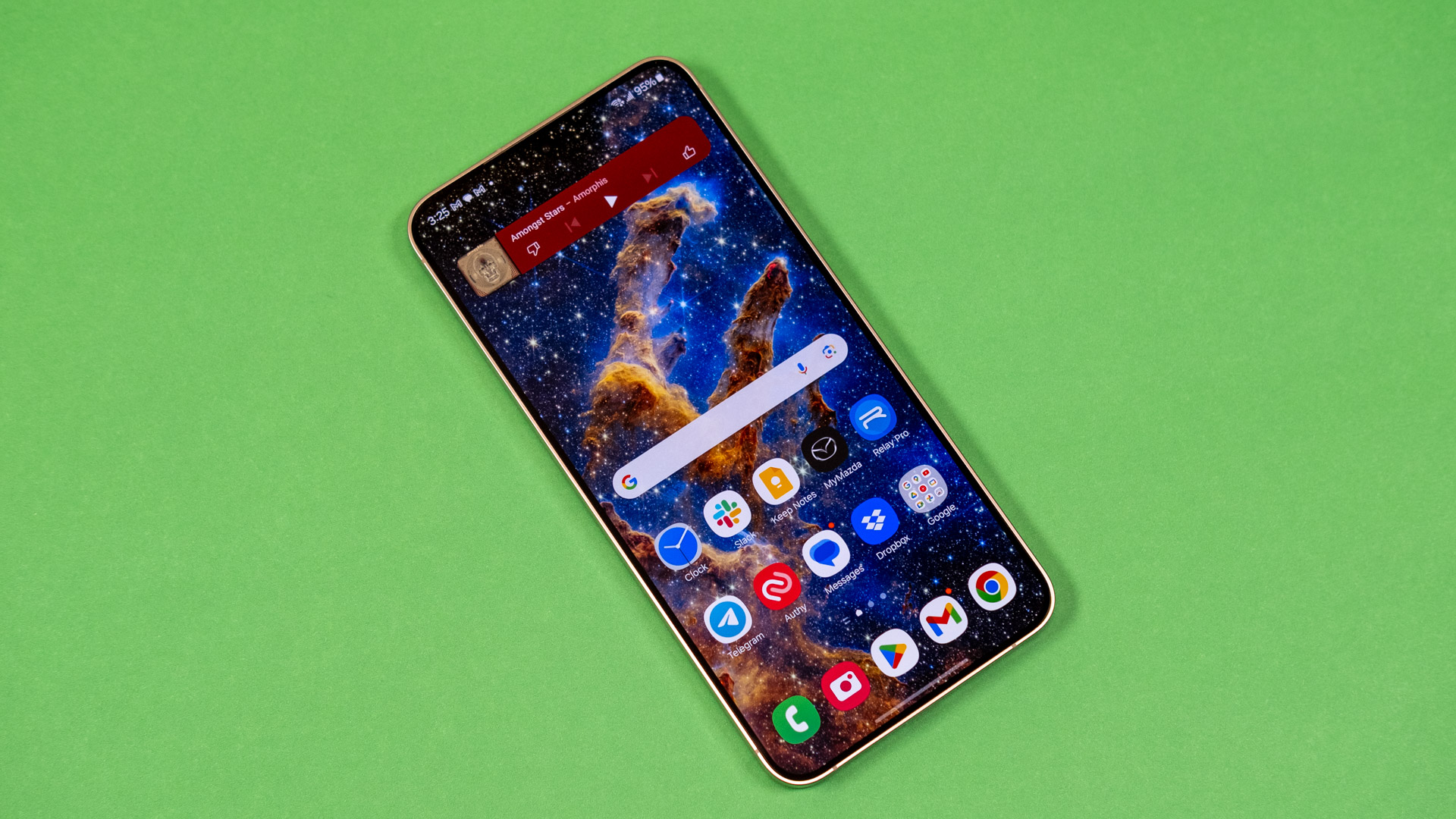
Credit: Ryan Whitwam / Android Authority
There are no major surprises in the Galaxy S24 Plus. The only physical change of note is the redesigned flat frame, and whether or not you consider that an improvement is largely a question of personal preference. I do, however, appreciate the upgraded OLED with a corresponding battery boost, and the phone is a lot lighter than the S24 Ultra (by 36g), even with a screen that’s almost as large.
If you want a Samsung flagship with a balance of size and price, the Galaxy S24 Plus might be the right choice.
Galaxy AI is nice to have, but don’t expect it to change the way you use your phone just yet. Most of the tools are integrated with Samsung’s apps, so you won’t get as much benefit if you prefer to install other apps, and Galaxy AI barely works without the cloud. Maybe Galaxy AI will improve over time, and you’ll be able to find out with the S24 Plus —Samsung’s decision to extend support to seven years is a win.
The $1,000 price tag is reasonable for a high-end Samsung phone, but your wallet might be happier with a cheaper phone like the Pixel 8 (
), which takes better photos and has cleaner software. There’s also the OnePlus 12 (
), which is just as fast and costs $200 less, and I actually like its camera a bit more in some instances.
Still, if you’re one of the Samsung faithful or you just can’t pass up that seven-year update guarantee, the S24 Plus might be the right choice. It’s smaller and cheaper than the Ultra (
), with a much bigger screen than the base Galaxy S24 (
), and you get all the same software goodies.
Samsung Galaxy S24 Plus review: FAQs
What's the difference between the Galaxy S24 and S24 Plus?
The S24 has a 6.2-inch 1080p OLED whereas the S24 Plus has a 6.7-inch 1,440p OLED.
Is the Samsung Galaxy S24 Plus waterproof?
The Samsung Galaxy S24 Plus is IP68 rated (up to 1.5m for 30 min).
Does the Galaxy S24 Plus have a headphone jack?
No, the Galaxy S24 Plus does not have a headphone jack. The USB-C is the only port.
Does the Galaxy S24 Plus have an SD card slot?
No, the Galaxy S24 Plus does not have an SD card slot. The internal storage is all you get.
Is the Galaxy S24 Plus dual SIM and eSIM?
Yes, the Galaxy S24 Plus has space for one physical nanoSIM and an internal eSIM.
Does the Galaxy S24 Plus have wireless charging?
Yes, the Galaxy S24 Plus charges at up to 15W with a compatible charger.

